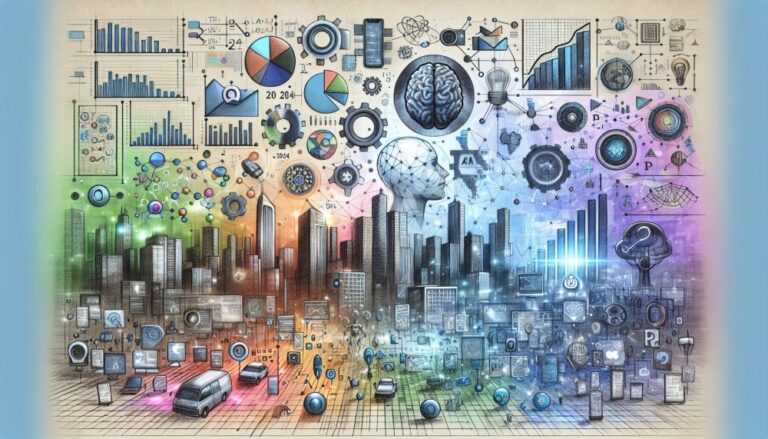As we enter 2024, the digital marketing field is rapidly evolving, with emerging technologies such as AI, VR, and AR having a major impact. New shopping patterns are also emerging as consumers turn to e-commerce platforms and seek innovative optimization strategies.
AI and machine learning are becoming more commonplace, improving campaign performance and automating processes, while the rise of voice search and conversational AI makes natural language processing essential. In tandem with these advancements, data privacy and security have taken center stage.
These changes in the digital world present numerous opportunities for marketers, driving them to innovate and adapt – attributes that are key to marketing success. By leveraging these dynamics, marketers can carve out new avenues for growth and engagement, and pave the way for survival in an era that is increasingly reliant on digital mediums.
Key digital marketing trends for 2024 highlight the importance of adaptive marketing, with a focus on personalization and real-time changes. Attention to customer experience will remain key, driving an omnichannel approach to communications. Additionally, there will be a trend towards evolving SEO strategies, with a focus on expertise, authority, and trustworthiness.
Adapting digital marketing to match the evolution of AI in 2024
The adaptation of voice search through platforms such as Alexa and Siri is also impacting SEO usage.
Digital marketing has seen a rise in remarketing tactics and the use of social media platforms as a catalyst for reaching wider audiences through video content and influencer marketing. While there is value in embracing these trends, it is still essential that companies maintain consistency in their brand voice and meet customer expectations.
A clearly defined strategic approach benefits marketers in this era, guiding their decisions and actions towards achieving their goals. The importance of control and foresight in planning was made clear in 2023, when the average tenure of Chief Marketing Officers (CMOs) was observed to be shorter. These attributes have proven necessary to successfully navigate the volatility of the digital marketing environment.
Generative AI has become a powerful force in the world of digital marketing, offering practical applications despite uncertainty about future trends. Progressive AI systems like OpenAI's ChatGPT 3.5 are poised to further transform the sector, promising improved customer experiences, deeper insights, and increased efficiency.
Upcoming developments in AI technology, such as Google's Gemini, reaffirm the growing importance of AI as a game-changer in many sectors, including education and healthcare. From improving business operations and predicting market trends to personalized chatbots and precision medicine, AI is augmenting human capabilities while reducing errors and increasing productivity. Therefore, the future of digital marketing is undoubtedly tied to the continued evolution of AI.


